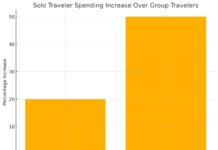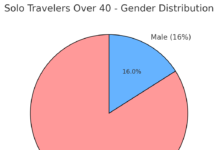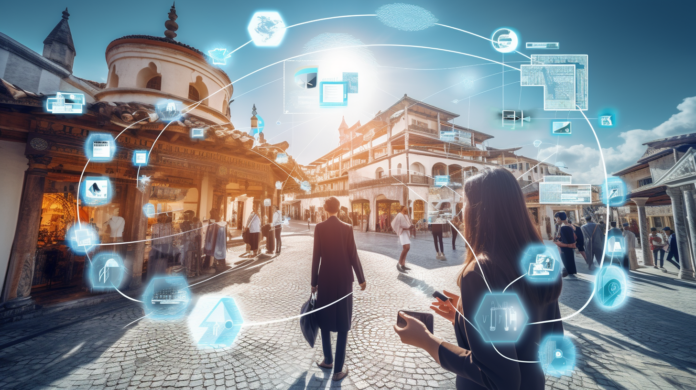Artificial intelligence (AI) is not a futuristic concept anymore. It is already here, and it is changing the way we live, work, play, and travel. The travel industry is particularly well-suited for AI, as it can improve the traveler experience and operational efficiency, empower employees, simplify logistics, and more.
In this article, we will explore some of the ways in which AI is making the travel industry smarter, more efficient, and more traveler-friendly.
AI-powered chatbots and virtual assistants
One of the most visible applications of AI in the travel industry is chatbots and virtual assistants. These are software programs that can interact with travelers via text or voice, providing information, support, recommendations, and bookings.
Chatbots and virtual assistants can help travelers in various stages of their journey, from planning to booking to during and after the trip. They can also help travel companies reduce costs, increase customer satisfaction, and generate more revenue.
For example, Juliet by WestJet is a virtual assistant that can handle 74% of client support requests via Facebook Messenger1. Juliet can answer questions about flight status, baggage allowance, check-in process, and more. She can also help travelers book flights, change seats, and manage their rewards.
Another example is Mezi by American Express Global Business Travel2, a chatbot that acts as a personal travel assistant for business travelers. Mezi can help travelers book flights, hotels, cars, and restaurants based on their preferences and travel policy. Mezi can also handle changes, cancellations, and emergencies.
AI-powered personalization and recommendation
Another way that AI is enhancing the travel industry is by providing personalized and relevant recommendations to travelers based on their preferences, behavior, context, and feedback.
AI can analyze large amounts of data from various sources, such as search history, booking history, social media, reviews, location, weather, etc., to create a profile of each traveler and offer them tailored suggestions for destinations, activities, attractions, hotels, restaurants, etc.
For example, Hopper3 is a mobile app that uses AI to predict flight and hotel prices and notify travelers when to book. Hopper can also recommend the best time to travel, the best airlines to fly with, the best places to stay at, and the best things to do at each destination.
Another example is Tripadvisor4, a popular online platform that offers millions of reviews and ratings for hotels, restaurants, attractions, etc. Tripadvisor uses AI to personalize the content and ads that each user sees based on their interests and preferences. Tripadvisor can also suggest itineraries based on user-generated content.
AI-powered automation and optimization
A third way that AI is revolutionizing the travel industry is by automating and optimizing various processes and tasks that are otherwise time-consuming, labor-intensive, or error-prone.
AI can help travel companies improve their efficiency, productivity, quality, safety, and profitability by automating tasks such as booking confirmation, invoice generation, fraud detection, inventory management, pricing optimization etc.
For example,
- Expedia5 uses AI to automate its email marketing campaigns based on customer behavior and preferences. Expedia can also optimize its pricing strategy based on demand forecasting and competitor analysis.
- Marriott6 uses AI to automate its revenue management system based on real-time data from multiple sources. Marriott can also optimize its room allocation based on guest preferences and loyalty status.
- KLM uses AI to automate its social media customer service by using natural language processing (NLP) to understand customer queries and provide relevant answers. KLM can also optimize its flight operations by using machine learning (ML) to predict delays and disruptions.
Conclusion
AI is not only a buzzword but a reality in the travel industry. It is transforming the way travelers plan, book, enjoy, and share their trips. It is also helping travel companies improve their performance, reduce their costs, increase their revenue, and enhance their customer loyalty.
AI is not a threat but an opportunity for the travel industry. It is not going to replace humans but augment them. It is not going to ruin everything but make everything better.
If you are interested in learning more about how AI is changing the travel industry, check out these resources:
- Artificial Intelligence (AI) in Travel and Tourism – Thematic Intelligence Report 2023
- Robo-Travel: How AI Is Changing The Industry – Forbes
- Artificial Intelligence in Tourism & Travel Industry | Accenture
- AI in travel: Seven examples of how AI is making travel industry smarter, efficient, and travellers friendly

























